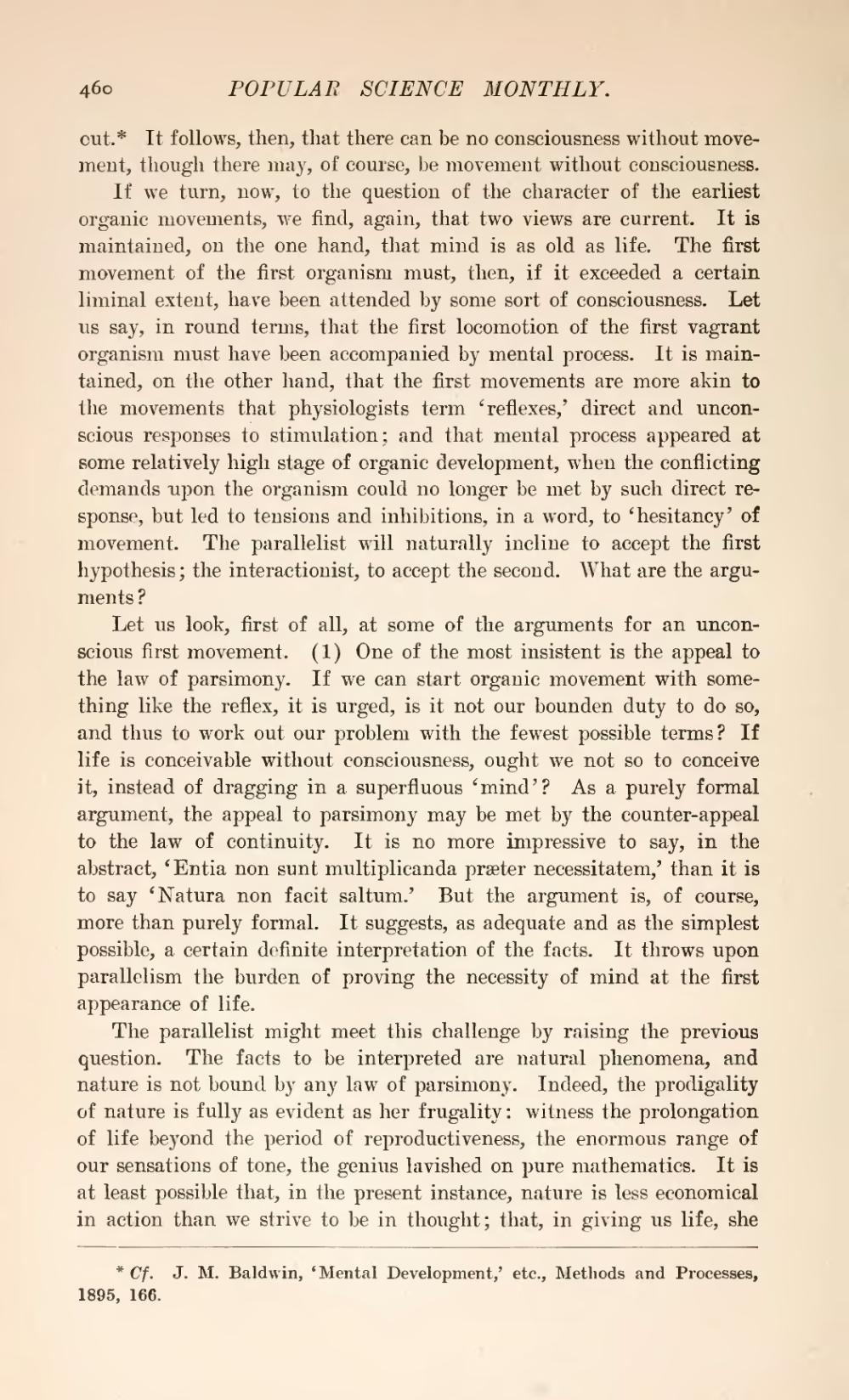out.[1] It follows, then, that there can be no consciousness without movement, though there may, of course, be movement without consciousness.
If we turn, now, to the question of the character of the earliest organic movements, we find, again, that two views are current. It is maintained, on the one hand, that mind is as old as life. The first movement of the first organism must, then, if it exceeded a certain liminal extent, have been attended by some sort of consciousness. Let us say, in round terms, that the first locomotion of the first vagrant organism must have been accompanied by mental process. It is maintained, on the other hand, that the first movements are more akin to the movements that physiologists term 'reflexes,' direct and unconscious responses to stimulation; and that mental process appeared at some relatively high stage of organic development, when the conflicting demands upon the organism could no longer be met by such direct response, but led to tensions and inhibitions, in a word, to 'hesitancy' of movement. The parallelist will naturally incline to accept the first hypothesis; the interactionist, to accept the second. What are the arguments?
Let us look, first of all, at some of the arguments for an unconscious first movement. (1) One of the most insistent is the appeal to the law of parsimony. If we can start organic movement with something like the reflex, it is urged, is it not our bounden duty to do so, and thus to work out our problem with the fewest possible terms? If life is conceivable without consciousness, ought we not so to conceive it, instead of dragging in a superfluous 'mind'? As a purely formal argument, the appeal to parsimony may be met by the counter-appeal to the law of continuity. It is no more impressive to say, in the abstract, 'Entia non sunt multiplicanda præter necessitatem,' than it is to say 'Natura non facit saltum.' But the argument is, of course, more than purely formal. It suggests, as adequate and as the simplest possible, a certain definite interpretation of the facts. It throws upon parallelism the burden of proving the necessity of mind at the first appearance of life.
The parallelist might meet this challenge by raising the previous question. The facts to be interpreted are natural phenomena, and nature is not bound by any law of parsimony. Indeed, the prodigality of nature is fully as evident as her frugality: witness the prolongation of life beyond the period of reproductiveness, the enormous range of our sensations of tone, the genius lavished on pure mathematics. It is at least possible that, in the present instance, nature is less economical in action than we strive to be in thought; that, in giving us life, she
- ↑ Cf. J. M. Baldwin, 'Mental Development,' etc. . Methods and Processes, 1895, 166.
